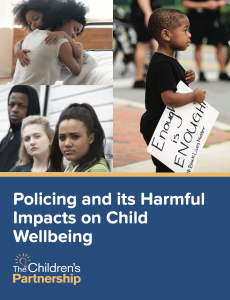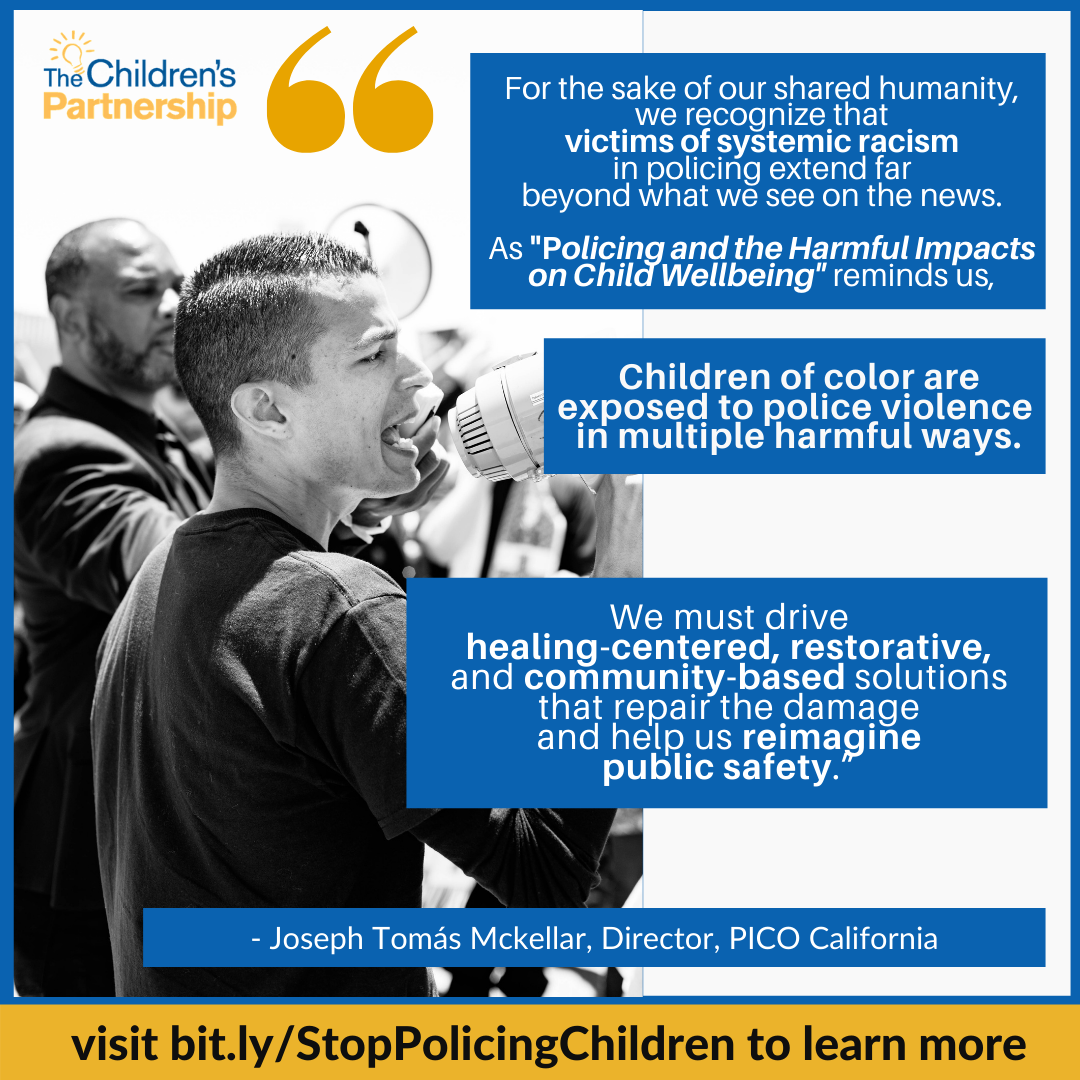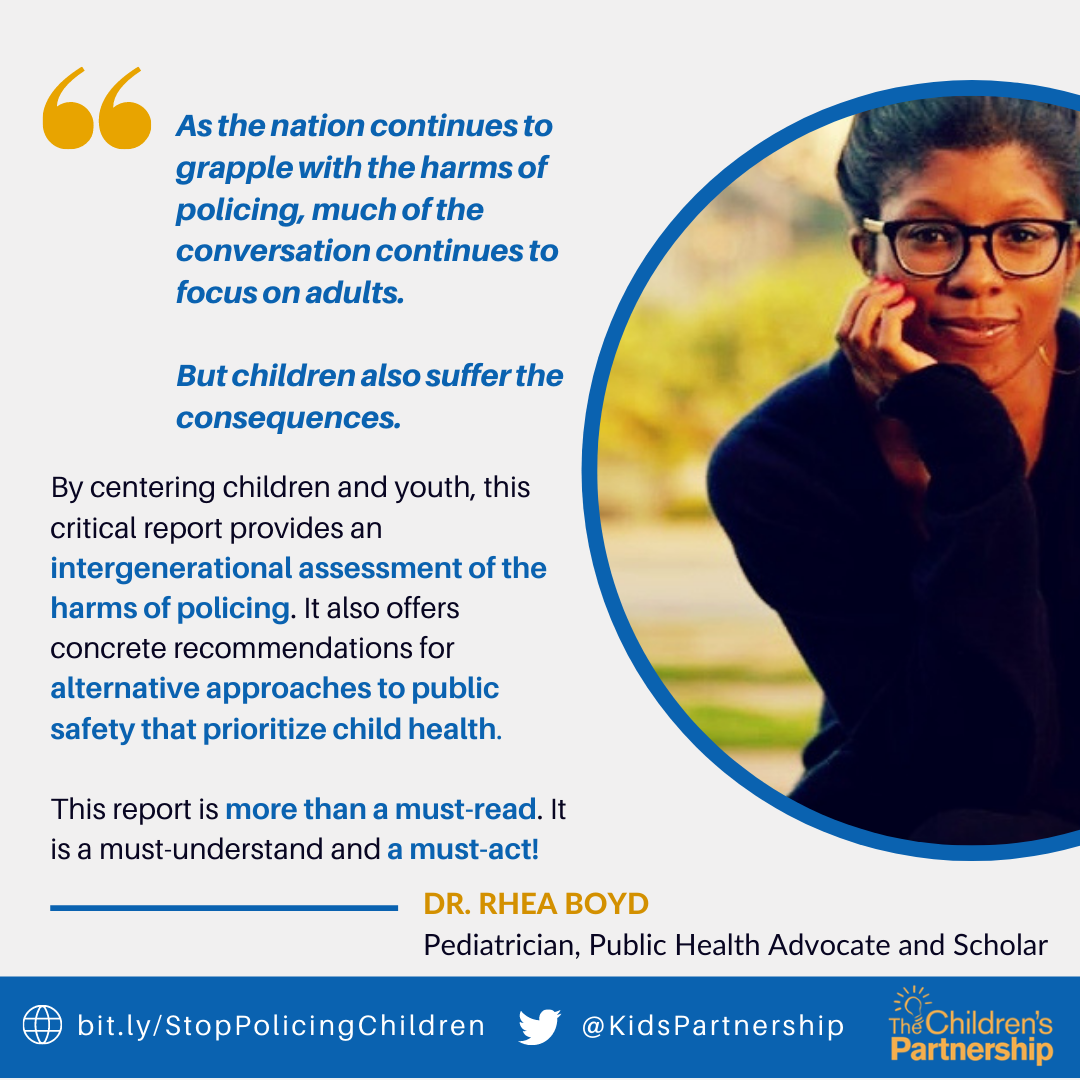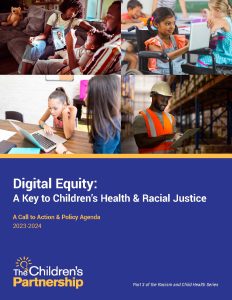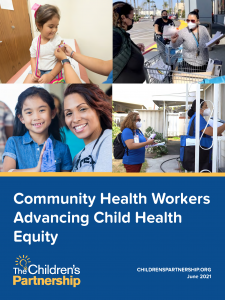We must acknowledge that systemic racism is a root cause of child health inequities.
Systemic racism does not belong to one political party. No matter who holds the power of our nation’s highest office, we know what ideology holds the power in our nation’s systems: white supremacy.
Racism impacts every stage of child development, beginning in the womb, and continues to shape the conditions in which children live, learn, develop, and play.
During this critical time of reckoning, The Children’s Partnership is proud to share a series of briefs, uplifting the pervasive impacts of institutional racism on the health and wellbeing of our children. Our goal is to bring to light some of the ways that institutions, from policing to medicine to technology, each perpetuate grave harm to the healthy development of Black, Indigenous, and People of Color (BIPOC) children, and therefore all children, in this country.
Through the series and our work with partners, The Children’s Partnership will explore opportunities to disrupt oppressive systems, defer to community leadership and demand bold innovations that put the wellbeing of our children first. By placing a child lens on issues of police violence, we hope to contribute to the incredible work led by BIPOC organizers and racial justice advocates for years.
DIGITAL EQUITY: A KEY TO CHILDREN’S HEALTH & RACIAL JUSTICE
Digital equity is a core social driver of health. The systems crucial to the well-being of our families are increasingly dependent upon digital infrastructure: education, health care, economic development, housing and access to public benefits, among others.
As a result of persistent structural racism, BIPOC communities have been disproportionately impacted by digital inequities, contributing to worse health outcomes compared to their white peers. Low income BIPOC communities are least likely to have reliable and affordable internet service, least likely to have adequate devices, and have been disproportionately affected by digital literacy gaps.
There is much to celebrate in recent policy actions, but implementation of policy and deployment of new resources are in the early stages. It is essential that advocates, residents, committed policymakers and community leaders are actively engaged to ensure that BIPOC children and families have a voice and are centered in decision-making.
Our newest brief, Digital Equity: A Key to Children’s Health & Racial Justice, aims to serve as a resource for advocacy to advance digital equity in order to address the disparate impact of the digital divide on BIPOC children. The brief explains the pillars of digital equity, gives examples of the opportunities that are enabled by digital equity, describes the current policy landscape, and through a child health lens, lays out an actionable policy agenda that we have the power to move in the next two years.
COMMUNITY HEALTH WORKERS ADVANCING CHILD HEALTH EQUITY
Racism impacts every state of a child’s development and continues to harm children by shaping the conditions in which they live, learn and play.
Health care in the United States is marked by centuries of racial injustice and myriad forms of violence against BIPOC communities. BIPOC communities have challenged and actively subverted racist structures in medicine to care for their own health by utilizing community-defined practices and care.
Our brief, Community Health Workers Advancing Child Health Equity, focuses on the community health workforce as a community-led, anti-racist solution in health care delivery for children. This brief explores the power of a community health workforce in advancing child health equity and dismantling systemic racism.
HARMFUL IMPACTS OF POLICING
Our first brief in the series, Policing and the Harmful Impacts on Child Wellbeing, offers a look at how the systemic racism that permeates U.S. law enforcement harms the health of BIPOC children. Whether direct or indirect, exposure to police violence triggers a stress response in children that leads to lasting adverse consequences from mental health and development to financial and academic success.
TCP aims to be a voice for marginalized communities and advocate for equity in health for all children. This brief highlights how systemic racism in policing leads to inequities in health for BIPOC children and offers opportunities to address the harms and prevent future negative impacts.
